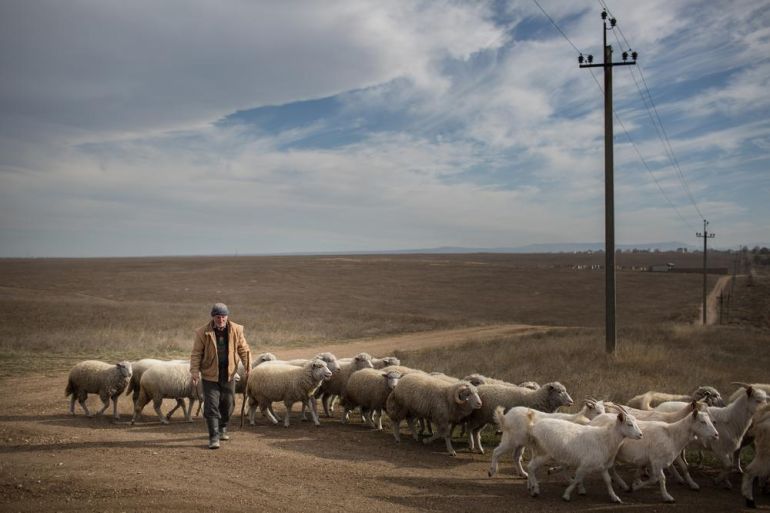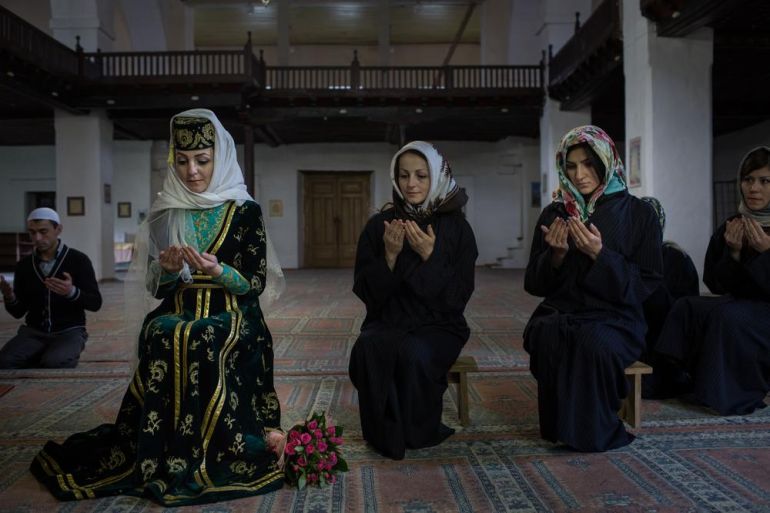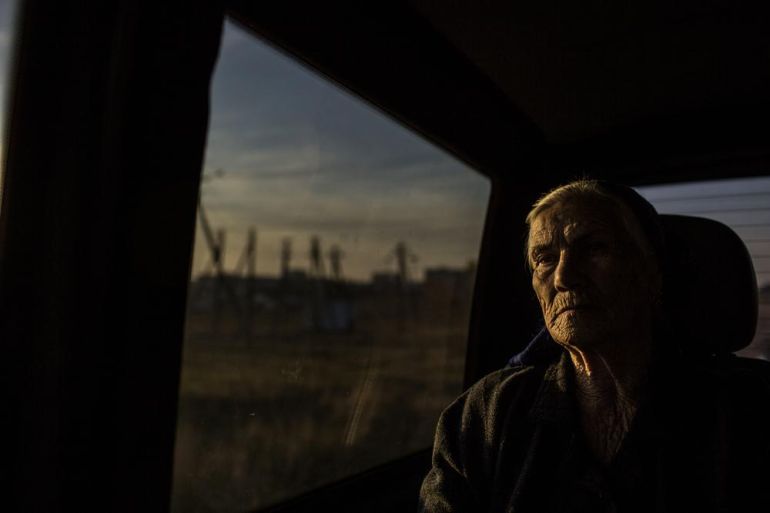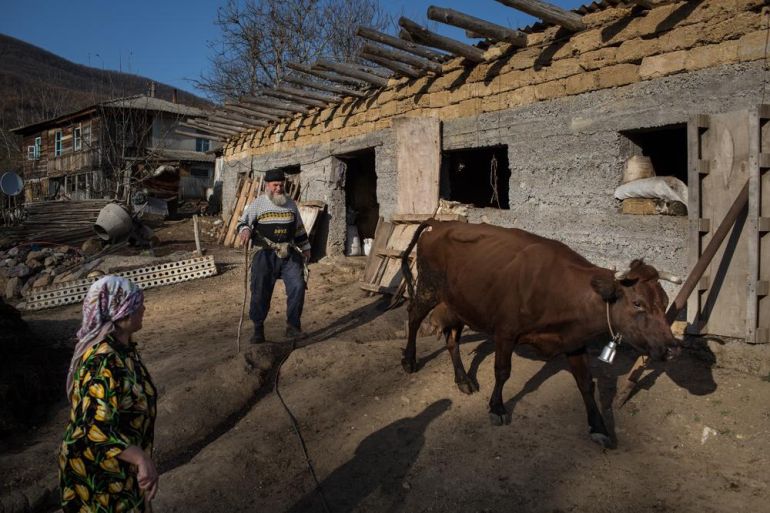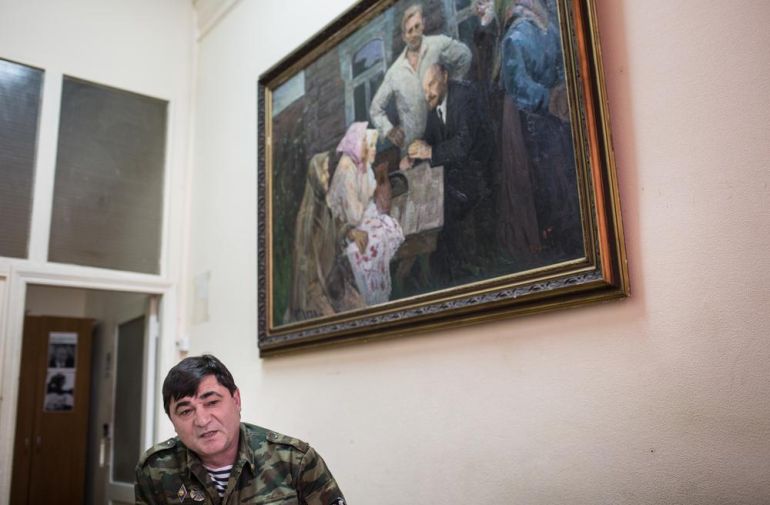In Pictures
Crimea’s persecuted Muslims
Paying the price: Tatars detained, interrogated, and harassed after Russia’s annexation of Crimea.

Putilovka, Crimea – Unlike Crimea’s ethnic Russian majority, most Tatars resisted Russia’s annexation of the Black Sea peninsula in March. They fielded patrols to prevent Russian soldiers, APCs, pro-Russian paramilitary squads and Cossacks from entering their villages, even using an Android app to turn their smartphones into walkie-talkies that provided instant communication with hundreds of people.
Moscow responded by exiling community leaders, banning rallies, closing down Tatar media outlets, and paralysing the work of the Mejlis, an informal Tatar parliament. At least 15 Tatars and pro-Ukrainian activists were kidnapped or went missing, one was found dead with traces of torture, another one allegedly hanged himself in a desolate barn.
Hundreds of Muslims were detained, interrogated, and fined for blocking highways during protest rallies. There were attempts to set two mosques afire, and several more have been vandalised.
Many Muslims complain that during searches officers force their way in, break down doors and furniture, and harass and humiliate them in front of their wives and children, according to more than a dozen people interviewed by Al Jazeera.
RELATED: Russia’s crackdown on Crimea’s Muslims

